🎗️Lonny's War Update- October 726, 2023 - October 1, 2025 🎗️
🎗️Day 726 that 48 of our hostages are still in Hamas captivity🎗️
**There is nothing more important than getting them home! NOTHING!**
“I’ve never met them,But I miss them. I’ve never met them,but I think of them every second. I’ve never met them,but they are my family. BRING THEM HOME NOW!!!”
Red Alerts - Missile, Rocket, Drone (UAV - unmanned aerial vehicles), and Terror Attacks and Death Announcements
*2:20pm - Gaza Envelope - rockets from Gaza - Kfar Aza, Mefalsim, Saad, Nir Am
Two rockets fired at southern Israel intercepted, IDF says
Two rockets launched from the northern Gaza Strip at southern Israel a short while ago were intercepted by air defenses, the military says.
There are no reports of damage or injuries.
Sirens had sounded in several communities near the border.
Turkish intelligence chief in Qatar for talks with Hamas about Trump’s Gaza plan
Turkey’s intelligence chief Ibrahim Kalin was sent to Doha by Turkish President Recep Tayyip Erdogan to participate in talks today with Hamas over Washington’s proposal for ending the war in Gaza, according to Turkish state media.
The presence of Kalin, a close confidant of Erdoğan, marks a more public step in Turkey’s mediation role over the past two years, and follows multiple successful meetings between Erdoğan and US President Donald Trump.
Kalin has previously held talks at home with Hamas leaders on Gaza-related issues.
Qatar announced it would hold discussions with Hamas negotiators and Turkey today to discuss Trump’s proposal, and Hamas is reportedly leaning toward accepting the deal and will give its response to mediators tomorrow.
Qatari PM: US plan for Gaza in early stages, requires ‘clarification and discussion’
Qatar’s Prime Minister Mohammed bin Abdulrahman bin Jassim Al Thani tells Al Jazeera that Israel’s withdrawal from Gaza, as described in the White House plan to end the war, requires “clarification and discussion.”
He adds, however, that ending the war is “a clear clause in the plan.”
He also says that a postwar government of Gaza is mentioned in the plan, and this will be a matter for discussion with the Americans, but “has nothing to do with Israel.”
“The plan is in its early stages and needs development. We are trying to create a path that safeguards Palestinian rights,” he adds.
Hamas weighs Trump ceasefire plan as pressure mounts from Arab states
Gaza leadership torn between humanitarian relief and ideological resistance; US sets deadline, as rejection risks prolonging war and eroding international support
Hamas is facing internal rifts and mounting pressure as it weighs whether to accept a U.S.-backed ceasefire plan introduced by President Donald Trump, which promises humanitarian relief for Gaza but may come at a steep political cost.Since Trump unveiled his "20-Point Plan," Hamas leadership has hesitated to make a final decision, torn between accepting a deal that could ease the humanitarian crisis in Gaza or rejecting it to maintain its image of defiance and ideological purity. The proposal has already been endorsed by Israel.A source close to Hamas leadership told Ynet the organization believes "the war is over" and that its leaders may be willing to accept the U.S. proposal, which includes an Israeli withdrawal from Gaza. According to the source, Hamas views its endurance through two years of "war, occupation and displacement" as a strategic win over Israel’s objectives, and is now considering relinquishing power, agreeing to international oversight, dismantling its offensive weapons and relocating some of its senior figures out of Gaza.“The declared Israeli goal was to remove Hamas from power and prevent its rearmament,” the source said. “Despite the heavy toll, Hamas withstood the campaign and is now weighing an agreement backed by key Arab and Islamic states.”A senior Palestinian official noted that Prime Minister Benjamin Netanyahu’s rare public apology to Qatar — a key mediator and financial backer in Gaza — was no coincidence. “Qatar is a central player in ending the war,” the official said. “Hamas is under pressure from Arab states, particularly Qatar, to agree to a deal.”Trump has given Hamas three to four days to respond. “We’re just waiting for Hamas. Hamas is either going to be doing it or not, and if it's not, it's going to be a very sad end,” he said before departing the White House, adding, “There isn’t much room" left for negotiation.Should Hamas accept the deal, a phased ceasefire would follow, likely involving deployment of Arab or international peacekeeping forces to Gaza. Implementation could take weeks or months, but the plan promises a partial reopening of crossings, humanitarian aid and initial reconstruction efforts.However, internal tensions remain. The Popular Front for the Liberation of Palestine and Palestinian Islamic Jihad (PIJ) have already rejected the deal. Fatah, meanwhile, has urged Hamas to accept the plan to spare Gaza further suffering.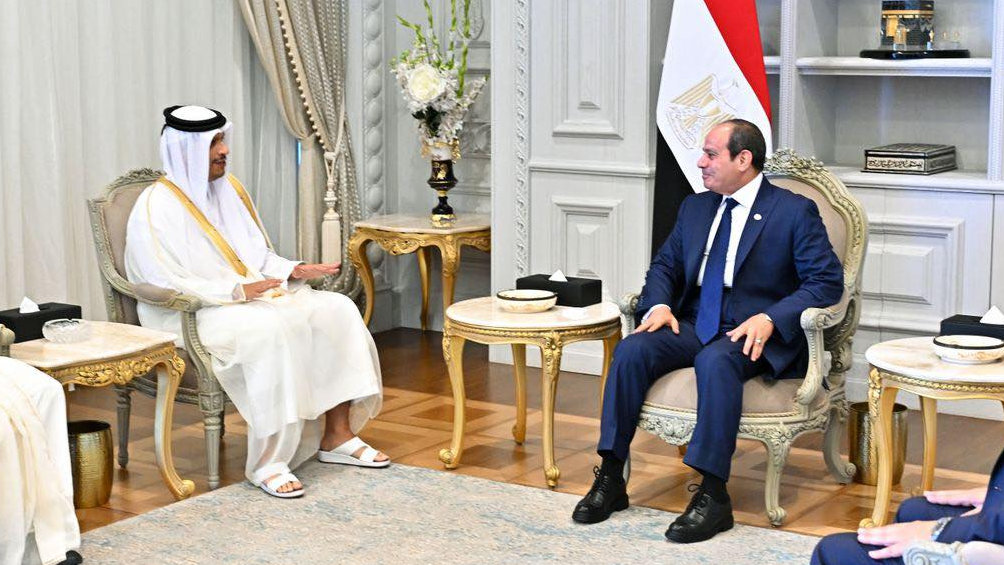 Qatari Prime Minister Mohammed Al Thani and Egyptian President Abdel Fattah el-SisiRejection of the plan could prolong the war and risk Hamas’ standing in the international arena, particularly with Egypt, Qatar and other Arab states. It could also fuel accusations of intransigence at the cost of civilian suffering. Yet, such a move might also bolster Hamas’ image among hardline Palestinian factions and supporters who favor continued resistance to what they see as U.S.-Israeli dictates.If Hamas refuses, Israeli airstrikes are expected to continue, exacerbating shortages of food, water and medicine. Some Palestinian officials warn that a rejection could also inflame tensions in the West Bank, Lebanon and beyond — a scenario echoed by PIJ leader Ziad al-Nakhalah.Regardless of its decision, Hamas is likely to pay a price — politically, internationally and among the Palestinian public. In Gaza, civilians anxiously await the outcome, caught between a fragile hope for relief and a fear that the war will only deepen. Link The deal on the table is possibly the last chance to end the war and bring home all the hostages. The changes in the 20 point plan that Netanyahu convinced Trump to make definitely favor Israel but there are points that are diametrically opposing Netanyahu's long standing goals and political position, such as the statement of Palestinian Statehood and the role that the reformed Palestinian Authority will play in post war Gaza. Despite Netanyahu's denials back in Israel, these are solid points put forward by Trump and are in the interests of the Palestinians, not Hamas but the Palestinians. Hamas, of course wants a Palestinian State but not as part of a 2 State Solution. They want it to be in place of the destroyed State of Israel, so these aspects of the agreement are not in Netanyahu's favor, but they are for the future of Israel and the Palestinians, nor are they in Hamas' favor. Of course, there are absolutely no details in this 20 point plan. It is a framework with the final goals stated and therefore negotiations to reach a final end will be grueling and neither side will get all that they want. That is the nature of negotiations. Support for Hamas in Gaza has reached its lowest ever and rejection by Hamas would impact that support even more. The Gazans want this war to end and already don't forgive Hamas for bringing upon them the second Nakba (catastrophe). They blame Hamas much more than they blame Israel. The pressure within Gaza as well as the pressure by the Arab countries that support the plan is very strong on the Hamas leadership and hopefully will carry them to agree with the plan.
Qatari Prime Minister Mohammed Al Thani and Egyptian President Abdel Fattah el-SisiRejection of the plan could prolong the war and risk Hamas’ standing in the international arena, particularly with Egypt, Qatar and other Arab states. It could also fuel accusations of intransigence at the cost of civilian suffering. Yet, such a move might also bolster Hamas’ image among hardline Palestinian factions and supporters who favor continued resistance to what they see as U.S.-Israeli dictates.If Hamas refuses, Israeli airstrikes are expected to continue, exacerbating shortages of food, water and medicine. Some Palestinian officials warn that a rejection could also inflame tensions in the West Bank, Lebanon and beyond — a scenario echoed by PIJ leader Ziad al-Nakhalah.Regardless of its decision, Hamas is likely to pay a price — politically, internationally and among the Palestinian public. In Gaza, civilians anxiously await the outcome, caught between a fragile hope for relief and a fear that the war will only deepen. Link The deal on the table is possibly the last chance to end the war and bring home all the hostages. The changes in the 20 point plan that Netanyahu convinced Trump to make definitely favor Israel but there are points that are diametrically opposing Netanyahu's long standing goals and political position, such as the statement of Palestinian Statehood and the role that the reformed Palestinian Authority will play in post war Gaza. Despite Netanyahu's denials back in Israel, these are solid points put forward by Trump and are in the interests of the Palestinians, not Hamas but the Palestinians. Hamas, of course wants a Palestinian State but not as part of a 2 State Solution. They want it to be in place of the destroyed State of Israel, so these aspects of the agreement are not in Netanyahu's favor, but they are for the future of Israel and the Palestinians, nor are they in Hamas' favor. Of course, there are absolutely no details in this 20 point plan. It is a framework with the final goals stated and therefore negotiations to reach a final end will be grueling and neither side will get all that they want. That is the nature of negotiations. Support for Hamas in Gaza has reached its lowest ever and rejection by Hamas would impact that support even more. The Gazans want this war to end and already don't forgive Hamas for bringing upon them the second Nakba (catastrophe). They blame Hamas much more than they blame Israel. The pressure within Gaza as well as the pressure by the Arab countries that support the plan is very strong on the Hamas leadership and hopefully will carry them to agree with the plan.
Hamas seeks amendments to Trump plan, wants ‘two or three days’ to respond – reportHamas officials want amendments to clauses in US President Donald Trump’s Gaza peace plan, including on disarmament, a Palestinian source close to the terror group’s leadership tells AFP.
Hamas negotiators held discussions yesterday with Turkish, Egyptian and Qatari officials in Doha, the source says, requesting anonymity to discuss sensitive matters.
The source adds that the group needs “two or three days at most” to respond.
Trump’s plan, backed by Israeli Prime Minister Benjamin Netanyahu, calls for a ceasefire, the release of hostages held by Hamas within 72 hours, the group’s disarmament and a gradual Israeli withdrawal from Gaza.
But the Palestinian source says: “Hamas wants to amend some of the clauses such as the one on disarmament and the expulsion of Hamas and faction cadres.”
Hamas leaders also want “international guarantees for a full Israeli withdrawal from the Gaza Strip” and guarantees that no assassination attempts will be made inside or outside the territory.
The source says Hamas was also in touch with “other regional and Arab parties,” without giving details.
Another source familiar with the negotiations tells AFP the Palestinian group was split over Trump’s plan.
“So far, there are two views within Hamas: the first supports unconditional approval because the important thing is to have a ceasefire guaranteed by Trump, provided that the mediators guarantee Israel’s implementation of the plan,” the source says, also requesting anonymity.
But others have “great reservations on important clauses,” the source adds. “They reject disarmament and for any Palestinian citizen to be taken away from Gaza.”
“They support a conditional agreement with clarifications that take into account demands by Hamas and the resistance factions so that the occupation of the Gaza Strip is not legitimized while the resistance is criminalized,” the source says. “Some factions reject the plan, but discussions are ongoing and things will become clearer soon.”
Hostages’ names read out as thousands attend final pre-Yom Kippur Slichot service at Western Wall
A day before Yom Kippur eve, thousands gather at the Western Wall for the last night of solemn Slichot prayers before the Jewish Day of Atonement.
In attendance are families of hostages held in Gaza.
Einav Zangauker, mother of hostage Mtan Zangauker, puts a note in the wall asking God for the return of all the captives and the safe return of all soldiers fighting in the Strip.
Western Wall Rabbi Shmuel Rabinovitch reads out the names of all the 48 remaining hostages during the service, in which observant Jews traditionally ask God for forgiveness for their sins during the past year.
Hostage’s mother: IDF chief told me army is bombing area of Gaza City where my son is
Anat Angrest, mother of captive soldier Matan Angrest, says in the Tel Aviv pro-hostage deal protest that IDF Chief of Staff Maj. Gen. Eyal Zamir told her in a meeting on Rosh Hashanah eve, Monday last week, that the military was bombing areas of Gaza City where Matan was being held.
“He is sending soldiers to kill their brothers and he is complicit in the crime as far as I’m concerned,” she says of Zamir. “A brave commander would at this stage stop and withdraw the forces until there was a plan to bring everyone home and win the war.”
Angrest speaks atop a jeep on King George Street, a block north of Prime Minister Benjamin Netanyahu’s Likud party headquarters. The building itself, known as Metzudat Ze’ev, is blocked off due to construction.
She says the ceasefire-hostage deal announced yesterday in Netanyahu’s press conference with US President Donald Trump filled her with hope but with a familiar dread.
“When I’ve felt that I’m almost getting Matan back, the prime minister has found how to scuttle [the deal], and he’ll search again for a way to make Hamas look like the rejectionist,” she says. “He’ll look again to bomb in Iran, Hezbollah, the Houthis — he’ll find all the reasons in the world not to do the one thing he should have done long ago.”
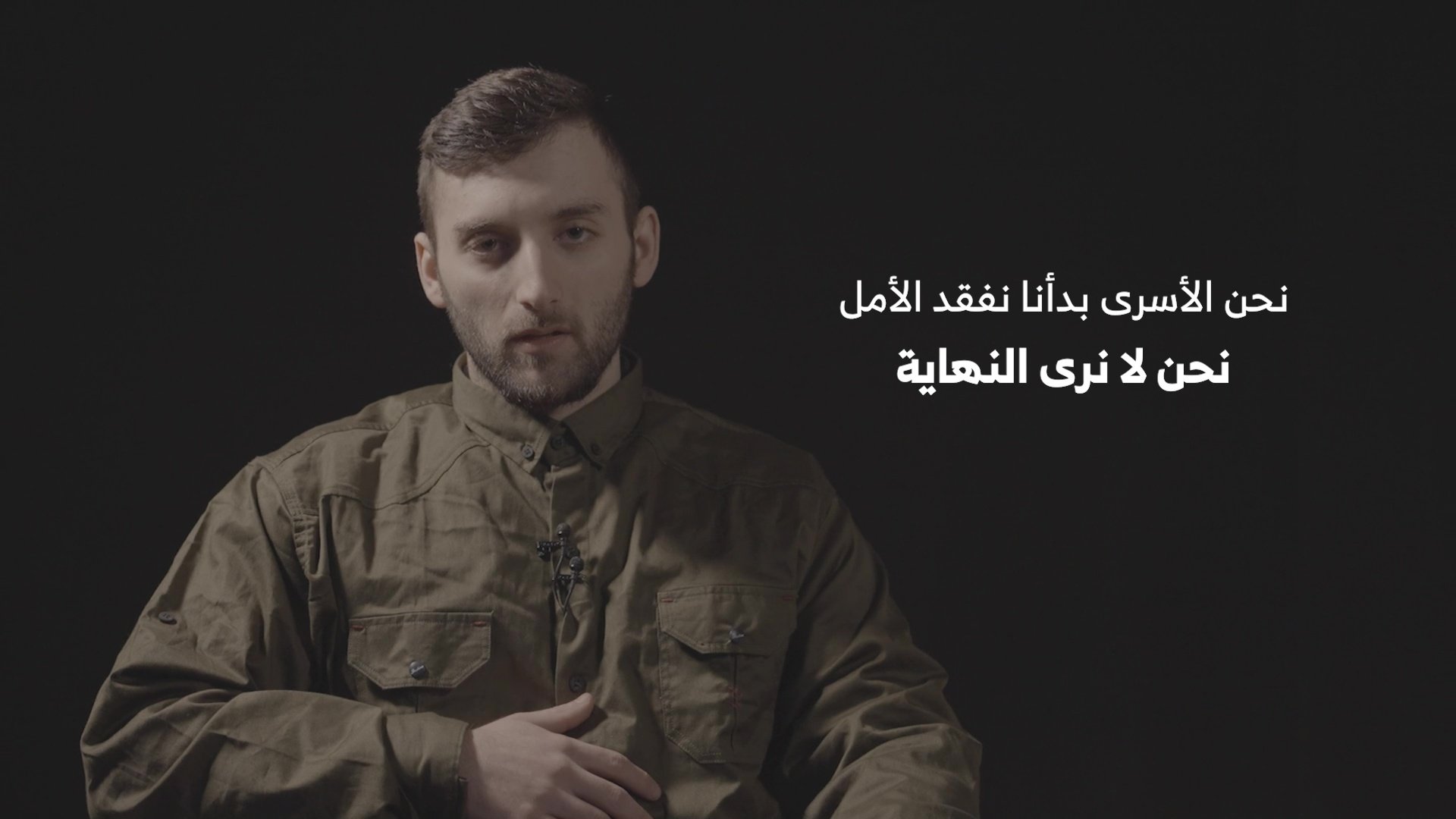 Hostage Matan Angrest is seen in a propaganda video published by Hamas on March 7, 2025. (Screenshot: Telegram)
Hostage Matan Angrest is seen in a propaganda video published by Hamas on March 7, 2025. (Screenshot: Telegram)Viki Cohen, mother of captive soldier Nimrod Cohen, says the parents of soldiers and hostages are here today to hold Netanyahu to his endorsement of Trump’s plan.
“We’ve already heard from a few ‘good Jews’ in the government today who don’t agree,” she says, possibly referring to Finance Minister Bezalel Smotrich’s statement that he thinks the deal “will end in tears.”
Other parents of combat soldiers currently in service also get up to denounce the war.
“Enough of the abandonment of the hostages, enough of the abandonment of the soldiers and yes, enough of the destruction and killing and flattening and erasure and looking at Gaza as a ‘real estate bonanza’,” says one father, referring to a recent comment by Smotrich.
Another father notes Trump’s allusion to Israeli protesters’ frequent appeals to him.
“We saw yesterday that you see us,” says the father. He warns Trump to be wary of Netanyahu.
“Be careful,” he says. “Don’t let him fool you.” link These parents of the hostages know too well that Netanyahu has been the direct reason for the failure of every negotiation and the breach of each of the deals to release hostages. With previous negotiations, Netanyahu always threw a wrench in to foul up the discussions. He would instruct the negotiation team that he had new demands that everyone knew Hamas would never agree to. And at any given time that a deal might be coming together or there was pressure by Trump, Netanyahu started additional military attacks that were sure to destroy any negotiations and he knew very well that his actions would make the captivity of the living hostages even worse, as has been reported by all of the returned hostages. Whenever negotiations broke down or the army began a new operation that distanced any possibility of a deal even further, the captors took it out on the hostages by starving them more, giving less water, torturing them more, making their hellish conditions even worse. Netanyahu knows all of this, yet it hasn't stopped him from doing what he wanted.
Two weeks ago, the end of the war was just days away. Trump presented his plan and Netanyahu agreed to it, even though he stated to the Israeli press that he was weighing it. Hamas was convening in Qatar to discuss and then approve the plan (that plan did not include the changes that Netanyahu convinced Trump to include 2 days ago). That would have brought the war to an end and returned all the hostages. But Netanyahu's agreement to the plan was still not what he wanted and the pressure by Trump was less than it has been this week, so Netanyahu looked for a way out and found it with the attack on the senior Hamas leaders meeting to agree to the plan. Netanyahu has not wanted to end the war and now was no exception. Although he agreed to the plan with Trump and made it very public in the press conference, it still has to go to the cabinet where there are many objections to the plan. Although some of those objections are within his own party and not just with his extremist partners, if he wants to, he will prevail and get his party members of the government to agree with him (that's what yes men do). Of the extremists, it is very likely that Ben Gvir will exit the government if the cabinet approves the deal and it is fairly likely that Smotrich will remain in the government because he knows that leaving the government places him in great risk of not having enough votes in the next election to gain reentry to the Knesset, let alone be a minister.
It appears that Netanyahu will appease Trump and have his cabinet approve of the plan which will bring the war to an end as soon as Hamas will agree as well, and then, within 72 hours, all of the hostages will be released. After 2 years of a horrible war and hostages still in captivity, it seems surreal to think that we may finally be reaching the end of this horrible period in our lives. Millions are hoping and praying that the surreal will be real.Israeli hostage team said awaiting PM’s go-ahead for resumed talks, may be sent to Qatar
Israel’s hostage negotiating team is awaiting instructions from Prime Minister Benjamin Netanyahu on whether to continue hostage talks, amid indications that a delegation could be sent to Qatar in the coming days, Hebrew media reports, citing sources familiar with the matter.
Reports add that Israel expects Hamas to give only a vague acceptance of the US proposal under discussion in Doha, likely responding along the lines of “yes, but” — particularly over contentious clauses such as the timetable for the IDF’s withdrawal from Gaza.
A senior Israeli official tells Channel 12 that the key decision-making power appears to be with Hamas’s leadership in Gaza, rather than abroad, since they are the ones who would ultimately need to relinquish weapons and governance of the Strip. link This 'the senior official' is obviously from the Prime Minister's office and they are trying to make it appear that Hamas will reject the plan. Their statement about the key decision making power is so off track and shows either how little they understand Hamas or how they are trying to sell Netanyahu's narrative.
Hamas has always been a consensus driven terror organization with the 'power' of decisions being with consensus. The different bodies that are part of that decision process had been the following: Senior leaders in diaspora (Qatar, Egypt, Turkey), political leadership in Gaza (prior to Sinwar being selected for both military and political leader in Gaza, the positions were always divided), and the Hamas leadership in Israeli prisons. Now, the situation is vastly different. The Hamas leadership in Israeli prisons have been totally cut off and are not able to be part of the decision making process. All of the political leadership in Gaza has been killed and at present, there are only 3 senior military leaders. None of them are considered political leaders and it is likely that they have little to no role in the decision making process. That leaves the senior leadership in the diaspora and those are the same leaders who came together from Egypt, Turkey and Qatar to discuss the original Trump plan 2 weeks ago when Israel tried to assassinate them all. None of them were killed and they are the ones who will make the decision to accept or reject the 20 point plan.
Most people do not have this understanding of how Hamas operates and decides and that includes 'officials' in the Prime Minister's office, although many of them probably do know but take their queues from Netanyahu who tries to sell his own versions of how Hamas operates in order to convince people of his actions, such as applying more military pressure so that the Hamas leadership in Gaza will give up the hostages, which is a Netanyahu narrative that had and has no basis in reality.Survey: Israelis support Trump plan, but are skeptical it will be implemented
A survey conducted following last night’s press conference by US President Donald Trump and Prime Minister Benjamin Netanyahu shows Israelis overwhelmingly support the American plan for an end to the war in Gaza, but doubt it will ever be implemented.
A large majority (71%) of Israelis back the US framework, the survey finds. Support is particularly high among Arab citizens, with 93% backing the plan.
Despite the broad support, however, only 12% of Israelis believe the plan has a high probability or certainty of being carried out.
The survey also shows Israelis are split about Netanyahu’s apology yesterday to the prime minister of Qatar for an Israeli airstrike targeting Hamas political leaders in Doha.
Roughly half of Israelis view it as the right move, given Qatar’s importance in ending the war and bringing about better ties with Israel’s neighbors; right-wing voters, however, largely opposed the apology, according to the survey.
The study, carried out by Nimrod Nir & Gayil Talshir from the Agam Institute and the Hebrew University in Jerusalem, surveyed 847 adult respondents representing the Israeli population. Its margin of error is 4.2%. Link The results of this survey are actually an indication of a much broader issue and situation. Firstly, it shows that the overwhelming majority of Israelis want the war to end and all the hostages brought home. It is not surprising that a small minority believe it will happen but the survey doesn't show why. The very strongly held view by most Israelis is that Netanyahu has been the major cause of the continuation of the war and the hostage crisis for his own political needs. I have no doubt that, if that question was asked in the survey, that would be the result. However, there are also many who believe that it won't happen because there are a number of aspects in the 20 point plan that are strongly in Israel's favor that they don't believe Hamas will accept. That has also been the case in many of the negotiations when Netanyahu deliberately, at the last minute instructed the Israeli negotiating team with new demands that he and they knew wouldn't be acceptable to Hamas.
The second very important indication of this survey is something that my brother has been stating for many years and goes far beyond this war and the hostages. It is about a peace process to end the conflict where the outcome would be a 2 State Solution. It has long been his contention that overwhelming majority of both peoples truly want peace but they each believe that the other side doesn't. No peace agreement could ever be reached by placing the discussions and negotiations in the hands of the people on the street. That is not how it ever works. That is why we have political leaders who are elected for just that. It is further his contention that once we do have leaders on both sides who will genuinely work of solving the conflict and not managing it, that they will come home with a peace agreement and when it will be presented to the people, either as a fait accompli or for a referendum vote and that vote will have the same results of this survey, that over 70% of the population on each side will be in favor of the agreement with some now knowing or choosing and the remainder being against.
We must remember the period of time before Sadat made his historic journey to Jerusalem and his always to remember 'no more war' declaration. Prior to that, the vast majority of Israelis believed that peace with Egypt could never happen, until it did and then the overwhelming majority of Israelis, over 90% were in favor of the peace accord even with the price of handing Sinai back to Egypt.
70% is an monumental majority and will be the basis for us finally reaching real peace and ending this 100 year conflict.Hamas terrorist who invaded on Oct. 7, bombed soldier in Gaza, killed in strike – IDF
A Hamas terrorist who invaded Israel during the October 7 onslaught and was responsible for a deadly attack on troops in northern Gaza in April was killed in a recent airstrike in the Strip, the military and Shin Bet announce.
Muhammad Rashid Muhammad Masri, the commander of a Nukhba Force platoon in Hamas’s Beit Hanoun Battalion, was killed in a strike on September 9, the IDF says.
The military says Masri participated in the Hamas-led onslaught on October 7, 2023, and carried out an attack, alongside other Hamas gunmen, in Beit Hanoun on April 19.
In the April attack, the Hamas cell had initially ambushed an army vehicle driving along a logistics road near Beit Hanoun with RPGs and gunfire, seriously wounding three servicewomen, including an officer and a combat medic.
After the attack on the vehicle, the terror operatives laid a bomb on the side of the road and detonated it when rescue forces arrived around 25 minutes later, killing a soldier, Warrant Officer G’haleb Sliman Alnasasra, a tracker in the Gaza Division’s Northern Brigade, and seriously wounding another tracker.
IDF publishes footage of forces detonating Hamas booby trap in Gaza City
The military publishes footage showing the detonation of a Hamas booby trap on the outskirts of Gaza City, which had been identified by troops before they were targeted.
The explosive devices had been located by reservists of the Yiftah Brigade during operations in the Zeitoun neighborhood of Gaza City under the 99th Division.
According to the IDF, troops in an armored vehicle spotted several explosives planted along the road they were driving on.
A combat engineer vehicle in the area — equipped with mine-clearing rockets — then struck the site, setting off the bombs which were intended to target the troops.
No soldiers were wounded in the incident, the army says.
IDF has nearly encircled Gaza City, Katz says; warns of ‘last opportunity’ to leave
Israeli troops are nearing the complete encirclement of Gaza City, Defense Minister Israel Katz says.
He says the IDF is currently seizing the western portion of the Netzarim Corridor — south of Gaza City — up to the coast, “bisecting Gaza between its north and south.”
“This will tighten the encirclement around Gaza City and everyone leaving it to the south will be forced to pass through IDF checkpoints,” Katz says.
Earlier, the military announced that the Rashid coastal road in Gaza would be closed for northbound movement to Gaza City starting at noon.
“This is the last opportunity for Gaza residents who wish to do so to move south and leave Hamas terrorists isolated in Gaza City, in the face of IDF activity that continues with full force,” Katz continues.
He says that those remaining in Gaza City will be “terrorists and supporters of terror.”
“The IDF is preparing for all possibilities and is determined to continue its operations, until the return of all the hostages and the disarmament of Hamas, en route to ending the war,” Katz adds. His remarks come as Israel awaits the response of Hamas to an American proposal to end the war, which Prime Minister Benjamin Netanyahu has accepted.

Israeli forces find cache of rockets and weapons near Ramallah in the West Bank
Israeli forces operating in the Ramallah area of the West Bank overnight located a cache of crude rockets and other weapons, the police, IDF and Shin Bet say in a joint statement.
The raid in the town of Beitunia overnight comes after a cell of terrorists was detained last month for manufacturing crude rockets to be launched at Israeli targets. The Shin Bet’s interrogation of the suspects led forces to the site.
The statement says Border Police officers, IDF troops and Shin Bet agents located 15 rockets that were in the process of being constructed, as well as 18 explosive devices, firearms and explosive material.
Some of the rockets and weapons were seized, while the rest were destroyed by Border Police sappers.
Reports: Settlers set fire to a building in a West Bank village, no casualties
Palestinian media outlets report that settlers set fire last night to a structure outside a home in the village of Huwara, south of Nablus, in the northern West Bank.
Footage shows figures outside the house, followed by the building engulfed in flames. There are no casualties, according to reports. link More unbridled and unpunished settler terrorism
Ben-Gvir’s death penalty push: A reckless gift to terrorists and extremists
Opinion: Death penalty for terrorists may satisfy calls for revenge, but it risks endangering hostages, fueling extremism, undermining Israel’s democracy, and handing its enemies the martyrdom they crave instead of real security
The Knesset’s National Security Committee met this week to advance a bill mandating the death penalty for terrorists. The legislation was pushed aggressively by National Security Minister Itamar Ben-Gvir and his far-right Otzma Yehudit faction, despite warnings from military and legal officials that the timing is reckless and the law itself unworkable. Even parliamentary legal advisers called the vote invalid, but the committee went ahead anyway.The very fact that this debate took place at all is symptomatic of what has defined Ben-Gvir’s tenure in government: a steady stream of provocative, media-driven stunts designed to posture as “tough on terror.” In practice, these gambits have not offered real solutions to Israel’s security challenges or social divisions. Instead, they have left the country less safe, more isolated internationally, and more polarized at home.At its core, the idea of executing convicted terrorists is not a deterrent; it is a recruiting gift. For decades, terrorist movements have sanctified “martyrs.” They glorify death in service of their cause. Executing them does not erase their deeds—it amplifies them. Each death at the hand of the state becomes a rallying cry for new recruits, a reason to avenge, a symbol around which to organize more violence.Terrorists are not hapless, misguided souls driven solely by poverty or circumstance; they are people who made a conscious decision to kill. Labeling them correctly — criminals, murderers, perpetrators of atrocities — is essential for moral clarity and for honoring the victims. But moral clarity does not compel the state to kill in return. Condemning their acts and holding them accountable through fair, rigorous trials and long prison sentences denies them the martyrdom they seek while preserving the moral high ground of a democracy that values life even when it is confronted by death.Hamas, Islamic Jihad, and similar organizations have proven adept at exploiting such symbols. Even now, Israel is holding its breath over the fate of dozens of hostages still trapped in Gaza’s tunnels. As the government’s own hostages coordinator, Maj.-Gen. (res.) Gal Hirsch, pleaded: debating this bill risks the captives’ safety. Families of hostages have warned from experience that when Israeli leaders agitate about the death penalty, captives suffer reprisals. Ignoring those warnings is not strength—it is hubris.Legal and practical chaosBeyond the strategic danger, the bill would mire Israel’s justice system in endless legal chaos. Death penalty cases do not end with conviction. They launch years of appeals, petitions and hearings, each one a media circus that broadcasts the defendant’s name, face, and message. Far from erasing terrorists, the courts would elevate them into political figures, transformed from criminals into perceived victims of “state oppression.”And then the questions multiply: Who will serve as executioner? Where will executions take place? What kind of infrastructure will Israel construct to administer capital punishment—an execution chamber in Ayalon Prison? A gallows in the Negev? These grotesque practicalities expose the unseriousness of the proposal. Israel has functioned for 75 years without institutionalizing capital punishment, except in the singular case of Adolf Eichmann. There is a reason for that.Lessons From Eichmann and the worldHannah Arendt’s reflections on Eichmann’s execution are instructive. She warned that turning such trials into moral theater obscures more than it reveals. Eichmann’s death did not bring understanding of the machinery of genocide; it reduced a vast and chilling bureaucracy of evil into a spectacle centered on one man. Executing terrorists today would repeat the mistake, turning ideological actors into martyrs while leaving the system that breeds them intact.Israel is hardly alone in this conclusion. Most of the democratic world has abolished the death penalty, not because terrorists or murderers deserve mercy, but because state executions brutalize public life, create irreversible miscarriages of justice, and fail to deter crime. Europe, Canada, Latin America, even South Africa after apartheid—all moved away from capital punishment for these very reasons.The moral case against state killingsThere is also a deeper moral argument. A democracy should resist the temptation to act with the same violence as its enemies. The state must embody the values it seeks to defend: restraint, justice, and the sanctity of human life. Capital punishment corrodes those values. It teaches that killing can be justice, that vengeance can masquerade as law.Jewish tradition itself is deeply cautious about the death penalty. The Talmud states that a Sanhedrin that executed only one person in 70 years was considered “bloodthirsty.” Rabbinic sages so narrowed the rules of evidence—requiring two eyewitnesses, warning the perpetrator in advance, and rejecting circumstantial proof—that capital punishment was, for all practical purposes, impossible. The point was not that murderers should go unpunished, but that the state should never be quick to shed blood in the name of justice.As Rabbi Akiva and Rabbi Tarfon famously said, had they sat on the Sanhedrin, no one would ever have been executed. This spirit—that life is sacred, that vengeance cannot be the basis of justice—has shaped Jewish moral reasoning for centuries. It is bitterly ironic that those who claim to act in the name of “Jewish values” are the very ones pushing Israel to abandon them.Punishment must protect society, not indulge revenge. Life imprisonment ensures that the guilty cannot harm again—without granting them the martyrdom they crave, and without burdening the state with blood on its hands.A pattern of extremismSo why now? Why press a bill that experts condemn, families of hostages oppose, and even Knesset lawyers have deemed improper? The answer lies not in security, but in politics. Ben-Gvir and his fellow Kahanists thrive on spectacle. Their movement is rooted in the teachings of Meir Kahane, whose ideology of Jewish supremacy was banned from Israeli politics for being racist and extremist. Yet today, his disciples hold key ministries and exploit every crisis to mainstream their agenda.It should not be forgotten that, only a few years ago, Ben-Gvir’s faction could not even muster enough votes to enter the Knesset. His rise was not due to a sudden surge of popular demand, but to political engineering. In the run-up to the 2021 and 2022 elections, Religious Zionist parties were strong-armed by Benjamin Netanyahu to join forces with him, giving Ben-Gvir the electoral boost he could never achieve on his own. Whatever Netanyahu’s personal objections to that alliance may have been, the fact remains that he bears responsibility for legitimizing Ben-Gvir and placing Kahanist extremism at the heart of government policy. This law is not an accident of timing; it is the predictable consequence of that political bargain.Ben-Gvir’s record is telling:• He has agitated to break the fragile status quo on the Temple Mount by pushing Jewish prayer at the site, a flashpoint that has triggered violence before.• He has called for reestablishing Jewish settlements in Gaza, as if returning to one of Israel’s bloodiest mistakes could possibly enhance security.• He has intervened in police promotions to punish officers linked to corruption probes involving Prime Minister Netanyahu.• He has dismissed hostage negotiations and declared that “maximum military pressure” is the only path forward, even though military officials and released captives alike say otherwise.This is not governance. This is radical theater—cheap, dangerous and corrosive to Israel’s democracy and security alike.What Israel actually needsIsraelis deserve real answers to the terror threat, not stunts. That means bolstering intelligence capabilities, securing borders, pressing for international isolation of Hamas and its patrons, and negotiating responsibly for the release of hostages. It means prosecuting terrorists swiftly and firmly, but within the bounds of law and without turning them into martyrs. It means preserving Israel’s hard-won international legitimacy as a democracy governed by the rule of law, not undermining it with spectacles of state killing.But it also requires acknowledging a painful truth: violence does not come only from Hamas or Islamic Jihad. Radical settler elements, emboldened by ministers like Ben-Gvir, have also carried out acts of terror against Palestinians. Just as Palestinian leaders must reckon with the poisonous effects of glorifying armed struggle, Israel must confront the danger posed by its own extremists. Both societies pay the price when nationalist violence is tolerated, encouraged, or rewarded.The death penalty bill is not a solution. It is a distraction, one that satisfies a primal urge for revenge but leaves the country weaker, its justice system entangled, its enemies emboldened.What is needed now is a shared determination—among Israelis and Palestinians alike—to create a more clear-headed and reasonable environment, one that reduces the appeal of extremism on both sides. People like Ben-Gvir and Hamas thrive on rage, spectacle, and the promise of endless conflict. Real leadership would be the opposite: pragmatic, sober and committed to breaking the cycle of nationalist terror, not fueling it. LinkReebok said to ask Israel’s national soccer team to take company logo off uniforms
Global footwear brand Reebok is understood to have requested that Israel’s national soccer team remove the Reebok logo from the team’s uniforms.
Reebok is said to have asked its local equipment supplier, MSG Group, to pull its logo from the kits and uniforms of Israel’s national soccer team, according to reports in the Hebrew press.
Reebok was not immediately available for comment when contacted by The Times of Israel.
“We regret that the Reebok company has chosen to succumb to boycott threats that were completely irrelevant,” the Israel Football Association says in a statement. “There are clear laws against boycotts, and we will examine all legal options available to us.”
The association says its emblem and the Israeli flag will continue to be proudly displayed on all national team uniforms.
“We are convinced that a braver and more honest sponsor will be found in the near future,” the association says.
Reebok said to backtrack, after demanding its logo be taken off Israel’s soccer uniforms
Global sportswear brand Reebok backtracks from a demand to have its logo removed from the jerseys and kits of Israel’s national soccer team, the Israel Football Association (IFA) says.
The decision follows a conversation between IFA President Moshe Zuares, Reebok, and the MGS Group, the sportswear giant’s local franchisee.
“Reebok reversed its decision and the Israel national team’s uniforms in international matches will continue to feature the company’s logo as it has been up to now,” the IFA says.
The move comes after the IFA threatened legal action and accused Reebok of succumbing to boycott threats.
Earlier on Tuesday, it was reported that Reebok had instructed its local operating partner, MGS Group, to pull its logo from the kits and uniforms of Israel’s national soccer team.
European soccer union said to hit pause on vote to expel Israel, amid peace push
With this 'pause', we can already envision a turn around, albeit a slow one on the alienation of Israel as a pariah nation. Only the end of the war and the future working towards ending the Israel/Palestine conflict will bring about a reversal of the embargoes, boycotts and divestment going on in the world today against Israel. It will not happen magically or automatically with ending the war. It will be dependent on a total shift of positions by new Israeli and Palestinian leaderships who are focused on a new and brighter future for both of our peoples.
What has taken decades to build up, the alliances with Israel, the trade, cultural, educational, medical partnerships throughout the world, took a very short time to break them. Gaining them back will take years, hopefully not decades, but there is no chance of it happening at all as long as the war goes on and and long as there is no progress towards a 2 State Solution which will also bring normalization with Saudi Arabia to be followed with normalization with most of the Arab and Muslim countries of the world.US pro-Palestinian groups mum or opposed to Gaza peace deal
This should not be a surprise to anyone. It is known that diaspora pro-Palestinian groups and diaspora Palestinians are far more hard line than most of the Palestinians in the West Bank and Gaza percentage wise. It is a similar situation to Israelis who live in the diaspora. They, too are typically more hard liners than Israelis living in Israel, again percentage wise.
A possible reason for this among Palestinians may be that
Diaspora Palestinians are perceived as more "hard-line" than those in the West Bank and Gaza due to a combination of historical distance, different lived experiences, disillusionment with political leadership, and the influence of host countries. They are generally less exposed to the pragmatic compromises that Palestinians living under occupation must navigate daily. I think this is somewhat simplistic and skewed but there is some validity in the argument. I believe that it has more to do with the emphasis on national image and centered more on symbolism than the complexities of daily reality experienced with living in the West Bank and Gaza for Palestinians and Israel for Israelis.Italian PM urges flotilla to turn around, warns incident could derail peace efforts
Italian Prime Minister Giorgia Meloni again urges the activist flotilla attempting to deliver symbolic humanitarian aid directly to Gaza to “stop now.”
She warns in a statement that a confrontation with Israel could upset the current “fragile balance” that could lead to peace based on the plan proposed by US President Donald Trump.
“Many would be happy to disrupt” that plan, Meloni says.
“I fear that the flotilla’s attempt to breach the Israeli naval blockade could provide a pretext for this. Also for this reason, I believe the Flotilla should stop now,” she says.
The flotilla says Italy has informed it that the naval frigate shadowing it will soon issue a radio call, offering participants the opportunity to abandon ship and return to shore before reaching a “critical zone.”
Earlier, the Italian defense ministry said its navy would stop following the international flotilla once it reached within 150 nautical miles (278 km) of the shore of Gaza.
The Global Sumud Flotilla has repeatedly said it will continue to sail onwards.
It includes over 40 civilian boats carrying parliamentarians, lawyers and activists, including Swedish climate campaigner Greta Thunberg, aiming to break Israel’s blockade, which was imposed in 2007 to prevent arms imports to Hamas.
Yemen’s Houthis say they will target major US oil exporters, despite earlier truce
Yemen’s Houthis will target American oil companies, including Exxon Mobil and Chevron, despite an earlier truce agreed with President Donald Trump’s administration to not attack US-linked ships sailing in the Red Sea and the wider Gulf of Aden, the Iran-backed terror group says.
The Sanaa-based Humanitarian Operations Coordination Center (HOCC), which liaises between Houthi forces and commercial shipping operators and is associated with the Houthi military, sanctions 13 US companies, nine executives, and two vessels.
Entities designated by the Houthis “shall be dealt with in accordance with the principle of confrontation,” HOCC says on its website of what it will do regarding those deemed as being under their sanctions.
The announcement is a notice that the companies, which also include ConocoPhillips and Diamond S Shipping, are deemed hostile entities that are open to attack.
The companies do not immediately respond to requests for comment.
- Houthis: We attacked ship heading to Israel with cruise missiles
The Houthi rebels in Yemen claimed they attacked the Dutch vessel MINERVAGRACHT, which was "sailing to Israeli ports." According to their statement, the ship was attacked with cruise missiles in the Gulf of Aden Italy and Greece ask flotilla activists to compromise, call on Israel not to hurt them
Italy and Greece call on Israel not to hurt activists aboard an international flotilla, which is aiming to break Israel’s blockade of Gaza and deliver aid there, and bracing for Israeli action to block it.
“[We] are calling on the Israeli authorities to ensure the safety and security of the participants and to allow for all consular protection measures,” the two countries say in a joint statement issued by their respective foreign ministers.
Rome and Athens also call on activists to accept a compromise proposal to hand over aid to the Catholic Church, letting it distribute it in Gaza, and avoid a direct confrontation with Israel.
Flotilla members have repeatedly rejected the proposal, saying that a key part of their mission is to challenge and expose Israel’s naval blockade on Gaza, which they consider unlawful. Israel stopped flotillas earlier this year and has depicted them as a publicity stunt.
Trump in extraordinary executive order: 'Will view any attack against Qatar as threat to US'
US President Donald Trump signed an extraordinary executive order the day before yesterday, stating that his country will consider "any armed attack on the territory, sovereignty or infrastructure of Qatar" as "a threat to the peace and security of the United States." According to the order, in any case of an attack against Qatar, the US will take "all appropriate and lawful measures - diplomatic, economic and, if necessary, military - to protect the interests of the US and Qatar and restore peace and stability." This security guarantee, which has never before been given by the US to an Arab country, also includes "joint planning with Qatar to ensure a rapid and coordinated response to any foreign aggression against Qatar." link This is a direct outcome of Israel's attack on the senior leadership of Hamas in Qatar 2 weeks ago. Although Trump acted like he didn't know anything about it until moments before the explosion, the entire world knows that he gave Netanyahu the green light for the attack. The largest US military base in the Middle East which holds the largest US air base basically owns the airspace over Qatar. The attack on Hamas was within 15 miles of the bases, so it is very clear that something like a missile entering Qatari airspace could never have gotten through without the Americans allowing it to happen. Had it been a successful attack, Trump would have stated, together with Netanyahu that it was a coordinated attack and was against Hamas and not the Qataris. It would still have ruffled a lot of feathers but Trump would have closed some back room deals and all would be smoothened out. But this attack was a dismal failure and Trump hates failures so he removed himself from it entirely and claimed that he was angry at Netanyahu for ordering the attack. This week, in the White House he forced Netanyahu to apologize publicly to the Emir of Qatar for the attack and guarantee that Israel will never attack Qatar again. This executive order by Trump is the strongest guarantee of that especially in light of the fact that no one trusts Netanyahu and knows he is a consummate and pathological liar.
Acronyms and Glossary
ICC - International Criminal Court in the Hague
IJC - International Court of Justice in the Hague
MDA - Magen David Adom - Israel Ambulance Corp
PA - Palestinian Authority - President Mahmud Abbas, aka Abu Mazen
PMO- Prime Minister's Office
UAV - Unmanned Aerial vehicle, Drone. Could be used for surveillance and reconnaissance, or be weaponized with missiles or contain explosives for 'suicide' explosion mission
Join my Whatsapp update group https://chat.whatsapp.com/IQ3OtwE6ydxBeBAxWNziB0
Twitter - @LonnyB58 Bluesky - @lonny-b.bsky.social
My blogs in The Times of Israel my blogs
Substack - https://lonnyb.substack.com/
Twitter - @LonnyB58
My blogs in The Times of Israel my blogs
Substack - https://lonnyb.substack.com/



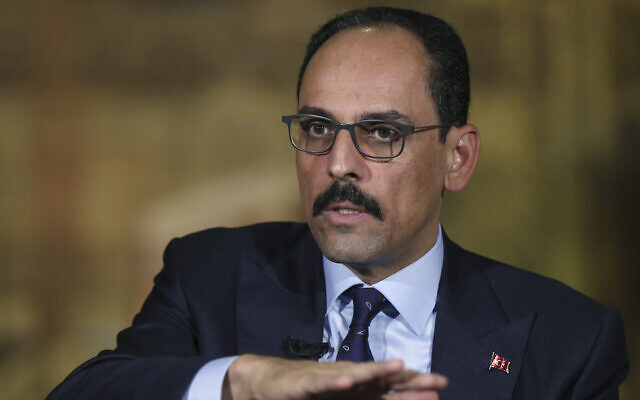
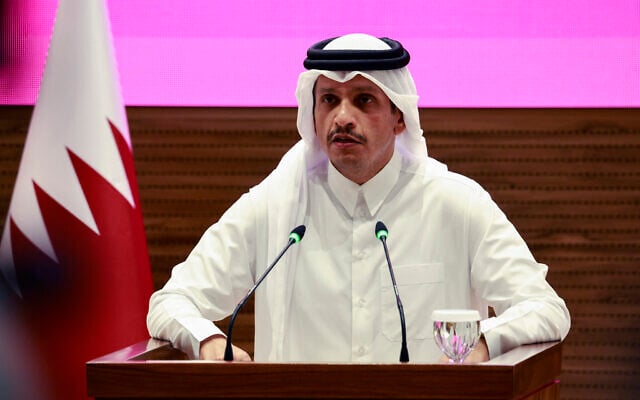
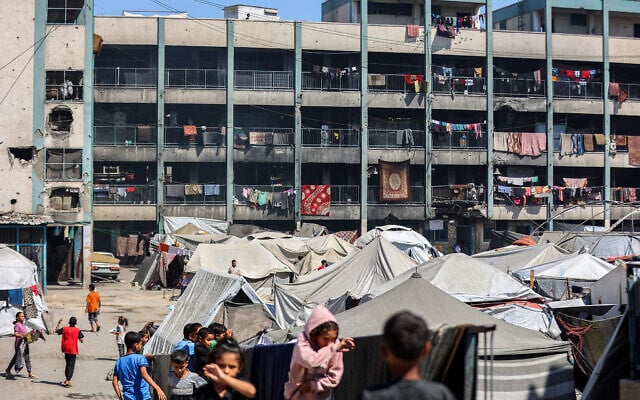
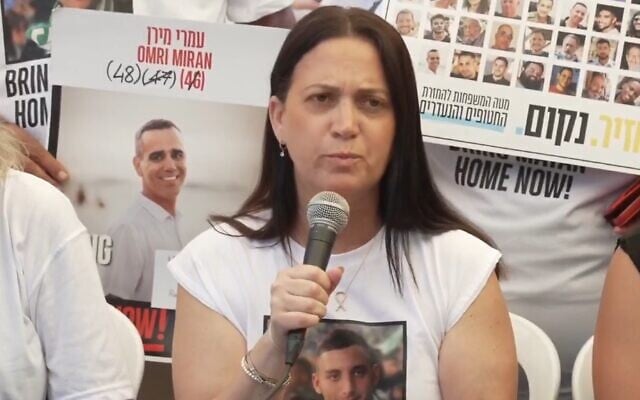
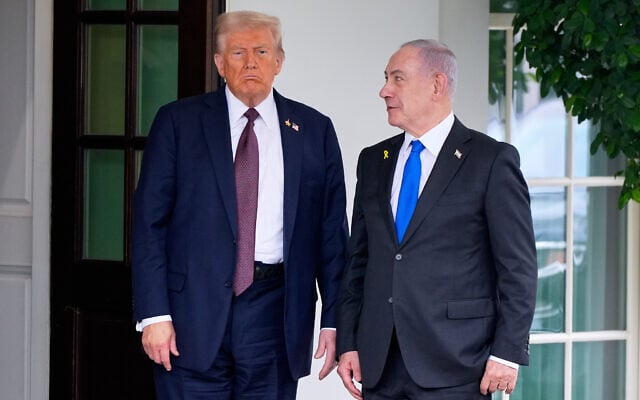
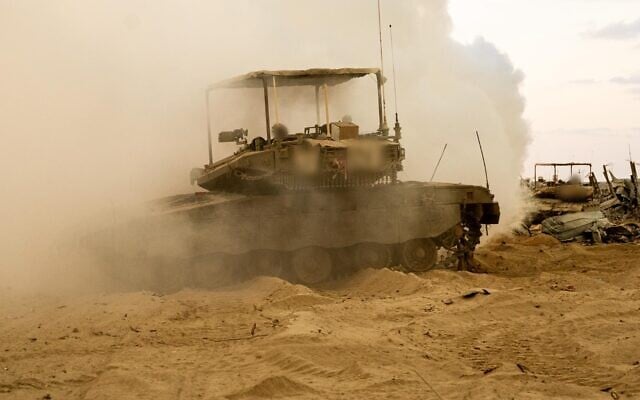
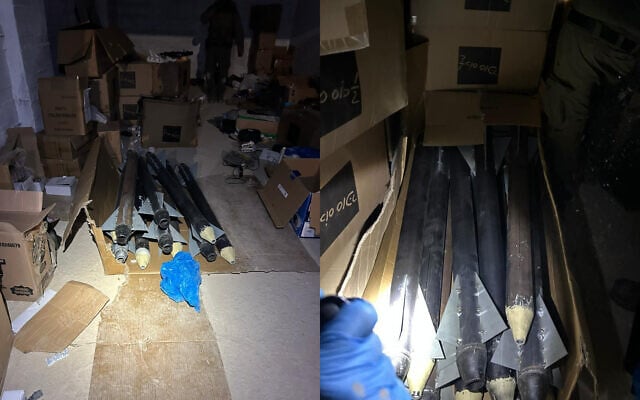
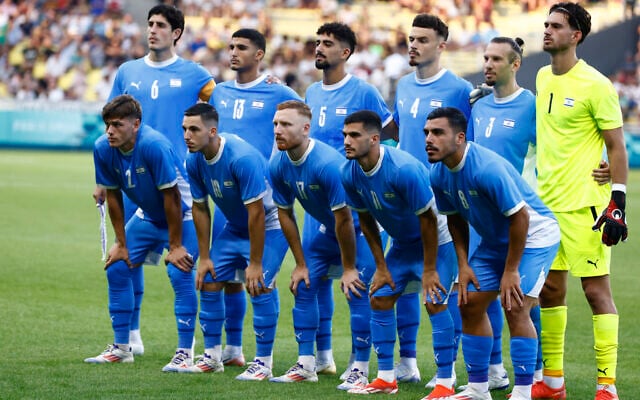

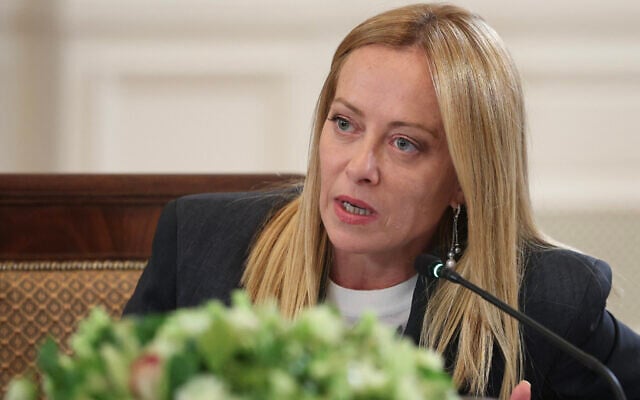
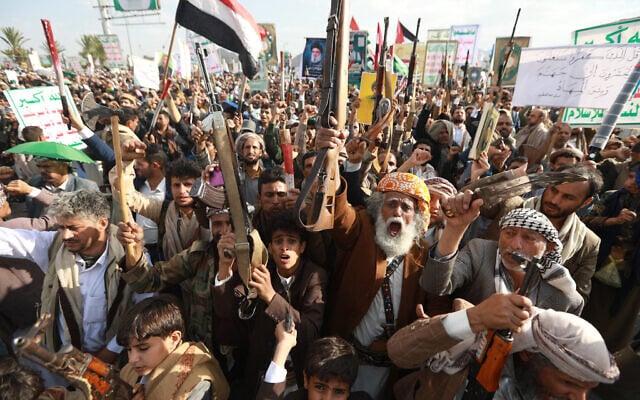
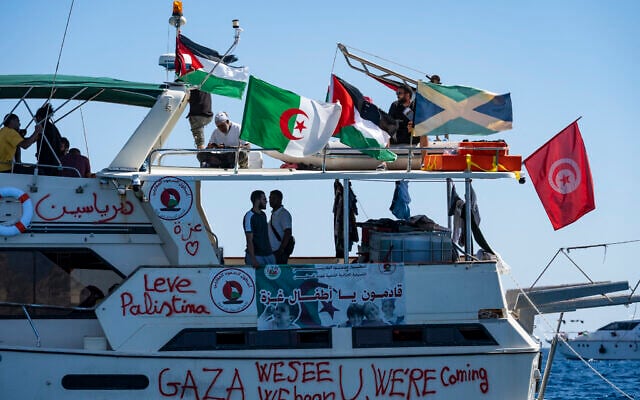



Comments
Post a Comment